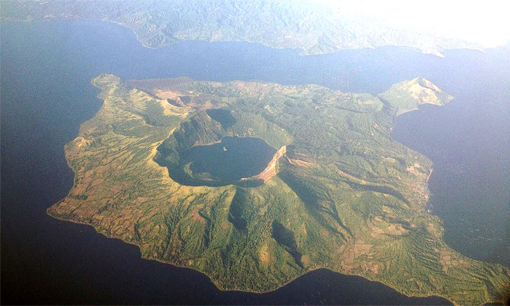Home > Public Advisory > Thunderstorm
Volcanic Advisory

Activity in the Main Crater in the past 24 hours has been characterized by steady steam emission and infrequent weak explosions that generated ash plumes 500 to 1000 meters tall and dispersed ash southwest of the Main Crater. Sulfur dioxide (SO2) emission was measured at an average of 4353 tonnes/day.
The Philippine Seismic Network (PSN) plotted a total of seven hundred fourteen (714) volcanic earthquakes since 1:00 PM, January 12, 2020. One hundred seventy-six (176) of these registered at magnitudes M1.2 – M4.1 and were felt at Intensities I – V. Since 5:00 AM on January 19, 2020 until 6:00 AM today, there were twenty-three (23) volcanic earthquakes plotted, registered at magnitudes M1.2-M3.8 with one (1) felt event at intensity I.
For the past 24 hours, the Taal Volcano Network, which can record small earthquakes undetectable by the PSN, recorded six hundred seventy-three (673) volcanic earthquakes including twelve (12) low-frequency earthquakes. Such intense seismic activity likely signifies continuous magmatic intrusion beneath the Taal edifice, which may lead to further eruptive activity.
Alert Level 4 still remains in effect over Taal Volcano. This means that hazardous explosive eruption is possible within hours to days. DOST-PHIVOLCS strongly reiterates total evacuation of Taal Volcano Island and high-risk areas as identified in the hazard maps within the 14-km radius from Taal Main Crater and along the Pansipit River Valley where fissuring has been observed. Based on PAGASA wind forecast, if the eruption plume remains below three (3) km, ash will be drifted to west and southwest of the Main Crater; if the eruption plume rises between three (3) to five (5) km ash will also be drifted to parts of Cavite province; however, if a major eruption occurs during the day and the eruption column exceeds 5 km, ash will also be drifted over Metro Manila, Laguna, and some parts of Rizal and Northern Quezon. Residents around the volcano are advised to guard against the effects of heavy and prolonged ashfall. Civil aviation authorities must advise pilots to avoid the airspace around Taal Volcano as airborne ash and ballistic fragments from the eruption column pose hazards to aircraft. DOST-PHIVOLCS is continually monitoring the eruption and will update all stakeholders of further developments.

